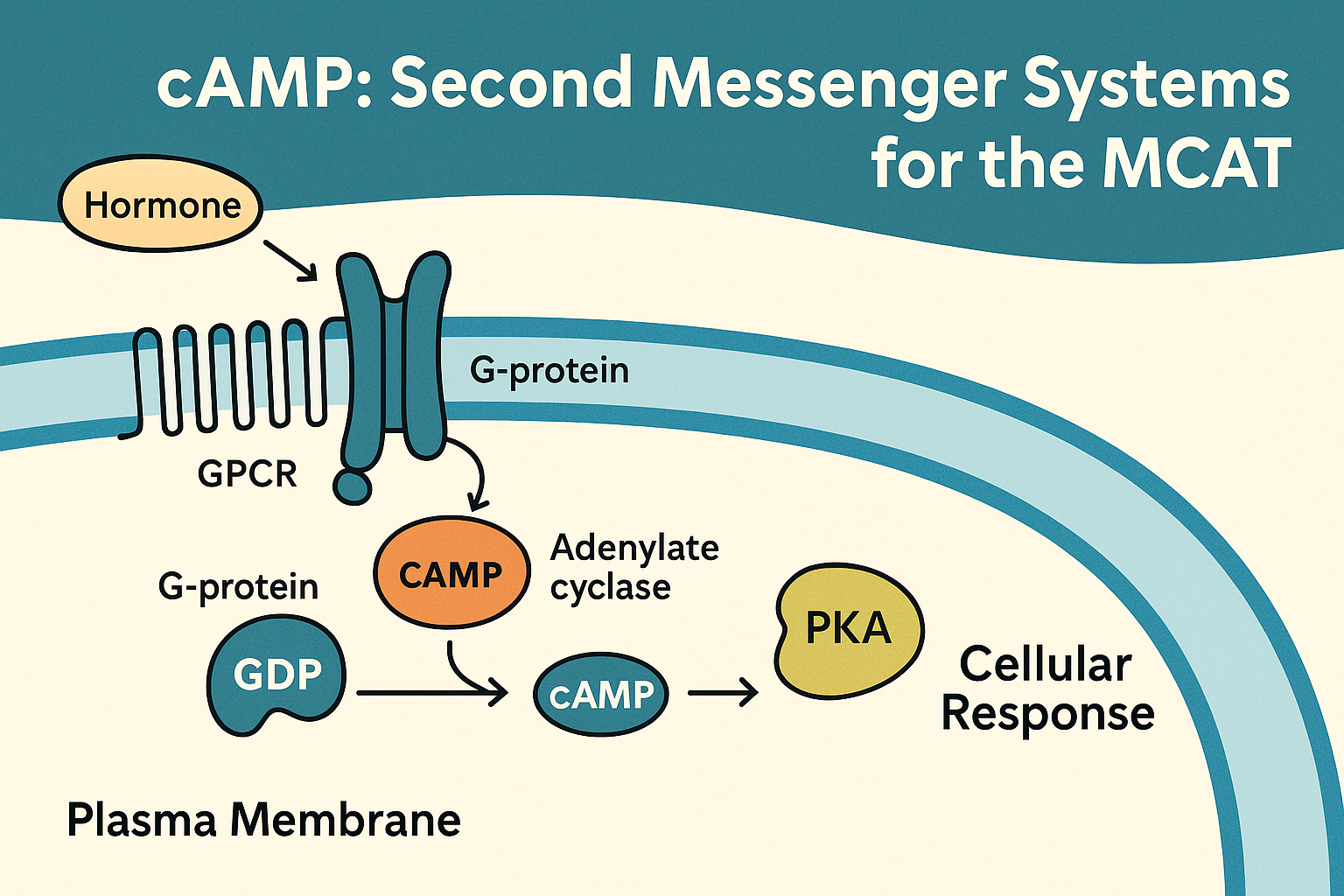cAMP: Second Messenger Systems for the MCAT
When your body responds to hormones like epinephrine or glucagon, the actual signaling inside the cell doesn’t involve those hormones directly. Instead, second messengers like cAMP take over. For the MCAT, understanding how cAMP is made, how it works, and how it leads to signal amplification is essential.
🧬 Key Steps in cAMP Signal Cascade
| Step | Description |
|---|---|
| 1. Hormone binds receptor | Typically G-protein coupled receptor (GPCR) |
| 2. G-protein activated | GTP replaces GDP on α-subunit |
| 3. Adenylate cyclase activated | Converts ATP to cAMP |
| 4. cAMP activates PKA | Protein kinase A phosphorylates cellular targets |
| 5. Response amplified | One hormone → many cAMP → widespread effects |
⚡ Common Hormones That Use cAMP
| Hormone | Effect |
|---|---|
| Epinephrine | ↑ Heart rate, ↑ glucose breakdown |
| Glucagon | ↑ Glycogenolysis, ↑ gluconeogenesis |
| ACTH | ↑ Cortisol synthesis |
| TSH | ↑ Thyroid hormone synthesis |
🧠 Note: Not all hormones use cAMP—some use calcium, DAG, or receptor tyrosine kinases (like insulin).
🧪 MCAT-Style Question Examples
✅ Question 1:
"A mutation in adenylate cyclase prevents cAMP formation…"
Answer: Hormonal signaling fails downstream despite hormone binding
✅ Question 2:
"What’s the role of PKA in glucagon signaling?"
Answer: PKA phosphorylates enzymes, activating or deactivating metabolic pathways
🧠 Final MCAT Tips
Know the sequence: GPCR → G-protein → adenylate cyclase → cAMP → PKA
Understand signal amplification: One ligand leads to thousands of cellular effects
Learn which hormones use cAMP and which use alternative messengers
✅ Call-to-Action (CTA)
Want to master cellular signaling in minutes? Visualize it clearly with King of the Curve's MCAT diagrams, memory-boosting flashcards, and rapid recall drills. Don’t just memorize—internalize.
Frequently Asked Questions (FAQs)
-
Aim for 4-6 focused hours, ensuring you incorporate breaks to avoid burnout.
-
Practice mindfulness techniques, take practice exams under realistic conditions, and maintain a balanced lifestyle.
-
Set short-term goals, seek support from mentors, and reward yourself for small achievements.
-
Regular exercise improves focus, reduces stress, and enhances overall mental clarity.
-
KOTC offers personalized learning tools, gamification features, and adaptive question banks to help students stay on track without burnout.


